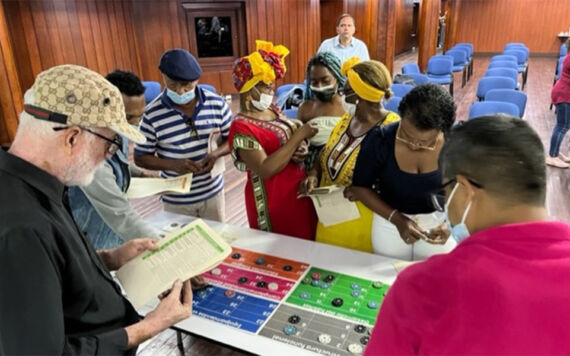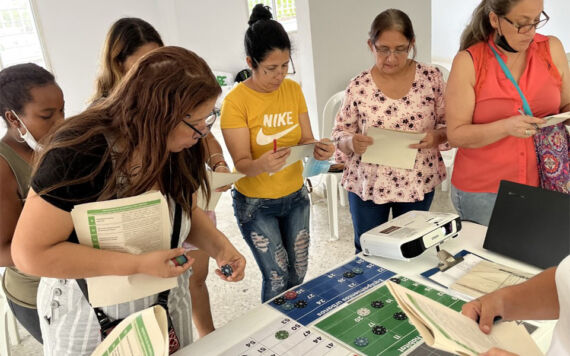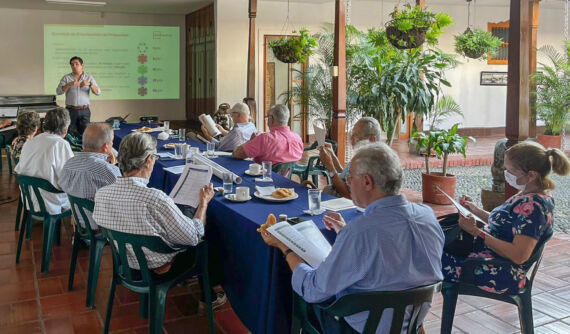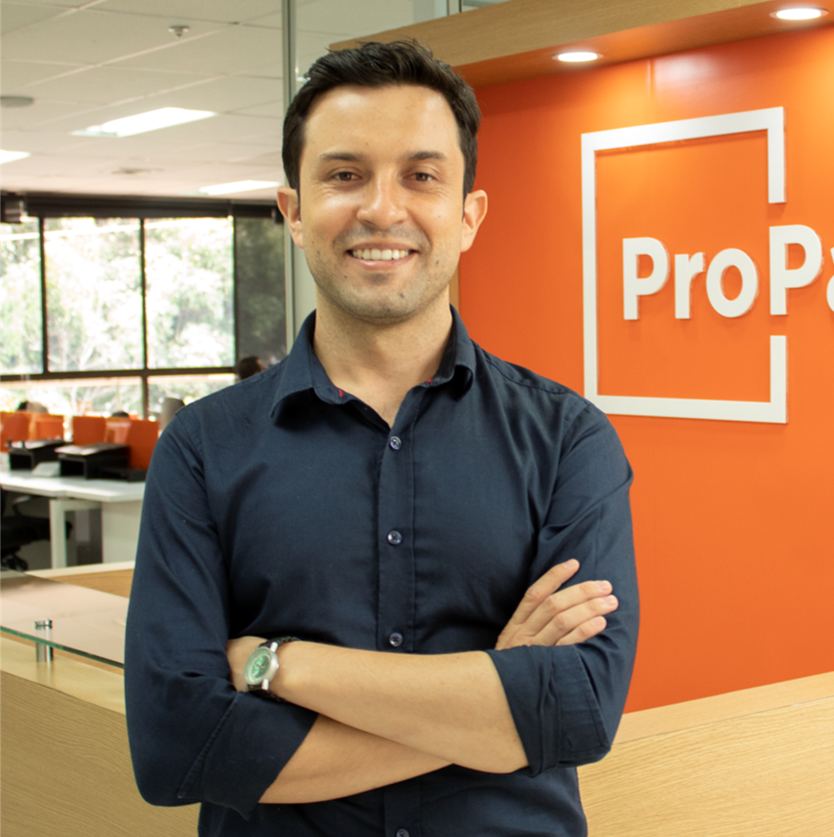| Project Name | SDG Pathway: Agents for change |
| Commisioned by | Federal Ministry for Economic Cooperation and Development (BMZ) |
| Country | Colombia |
| Implementing Organisation | Fundación para el Desarollo Integral del Pacífico (ProPacífico) – propacifico.org |
| Duration | November 2021 – October 2023 |
The Challenge
Existing Gaps in the Pacific Region: Colombia is behind on many of the goals of the 2030 Agenda. In Cali and the Pacific region, the gap is even bigger. Within the current crisis triggered by the COVID-19 pandemic, the Pacific region has been strongly impacted. The social and economic gap has widened and has dented the implementation process of the 2030 Agenda.
Implementation of the SDGs: The Pacific region lacks resources and access to data used to measure public policies and SDG targets. Nevertheless, regional decision-makers should act on the basis of up-to-date data, reflecting real needs and incorporating the SDG approach.
The Objective
The project aims to strengthen capacities of stakeholders in tracking and monitoring regional data tools. Based on evidence and through citizen participation processes, local projects that have the potential to catalyze a sustainable recovery are promoted at national level.
The Target Group
The project mainly covers the Pacific region of Colombia (Valle del Cauca and Cali). The target group consists of decision makers from the public and private sectors. Simultaneously, the activities are public and integrate citizen participation processes.
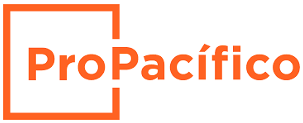
About ProPacifico
ProPacífico is a private, non-profit foundation that brings together public and private actors in promoting high-impact projects. Its activities contribute to the inclusive and sustainable development of Cali, Valle del Cauca and the Pacific region of Colombia.
Website: propacifico.org
The Approach
Elaboration of the Pacific Sustainable Development Index: The project elaborates an instrument to measure the progress of sustainable development: the Pacific Sustainable Development Index (PSDI). It includes (i) a composite index regarding the contribution of several municipalities to the SDGs; (ii) a ranking of the included municipalities and their SDG implementation; (iii) SDGs in ten local development plans. The PSDI provides a baseline of a local development agenda, that prioritizes “Recover Better” initiatives.
Regional Data Analysis: Information from primary sources is analyzed, synthesised and visualised for public use in the PSDI. Qualitative analysis tools and socialisation mechanisms are implemented, promoting and facilitating citizen participation.
Strengthen Skills to Influence Policy Processes: Part of the process depends on building consensus with local, regional and national actors. Hence, sharing the know-how of the PSDI with citizens and policymakers to effectively influence policies on the basis of evidence is a key activity of the project. It also qualifies people to use data analysis to monitor the implementation of public policies.
Proposing Regional Projects at National Level: A participatory ranking of key projects and the elaboration of the CaliAgenda are planned. Based on the evidence gained, projects of the Pacific region will be proposed to the national government.
Achieved Results
- The Pacific Sustainable Development Index has been updated with data on SDG indicators and an interactive dashboard: ODS – ProPacifico
- A regional information system on SDG implementation and monitoring for four municipalities in the Cali Metropolitan Region was designed and launched
- 962 people participated in the implementation of the data integration strategy and validate indicators, tools and data
- 4 policy papers with policy recommendations were prepared
David Humberto Gómez Bernal
Director of Development Analysis ProPacifico
In the context of sustainable development, what do you consider the greatest challenge that you help to overcome in your country? What is special about your project and approach, with regard to the context in which it is located?
Colombian society is currently polarized. This has hindered dialogue and consensus-building among some sectors. Thus, to overcome this challenge, we have tried to build links between actors who usually do not talk, generating social capital in the region. The development of the project has also incorporated, transversely, two essential points: (1) a focus on action, where we define action plans to have an effective and sustainable impact on the territory; and (2) we believe that it is valuable to “know less and ask more questions”, as this allows to articulate and build working strategies with organizations that also seek to contribute to the development of the region.
Let’s get specific: What was your most significant project success? What was especially important/notable? What are you particularly proud of having achieved?
The greatest success of the project is that the outcomes have incorporated actors from multiple sectors and have influenced local and national levels. Particularly, 17,831 citizens were called to prioritize strategic projects in Agenda Cali and several representative groups from the city also participated. For the Regional Information System, the importance of articulation with multiple organizations to achieve greater impact is recognized. In the case of the Municipal Sustainable Development Index, we saw that the potential for analysis offered by the index is wide, and that is why doing analysis at the level of other categories (victims, ethnic population, among others) enriches the input of this tool for the formulation of policies.
What have you learned and what experiences would you like to share with like-minded actors/practitioners?
During the development of the project we have confirmed the importance of recognizing that actors working, from different sectors, also have much to contribute to achieve sustainable development in the region. Thus, it is very important to generate spaces for dialogue that lead to the definition of articulated work routes that contribute to a greater impact in the territory. For this, it is key to develop flexible and inclusive methodologies that consider the particularities and needs of multiple stakeholders in order to collaborate effectively and reach more key spaces and instances.


